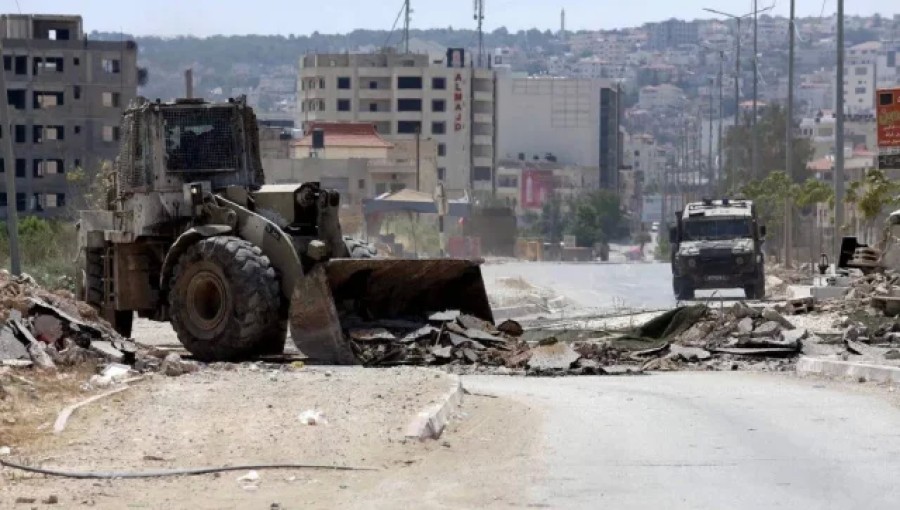Jenin, September 02 — Israeli forces have continued their military operations in Jenin, a city in the West Bank occupied by Palestine, for the fifth consecutive day. As part of what Israel describes as an 'anti-terrorist' campaign, the Israeli military has cut off essential supplies, including food, water, and electricity, to the area.
In addition to restricting basic necessities, there are reports from the French medical charity Doctors Without Borders (MSF) that Israeli forces have closed health facilities and targeted ambulances in the region. These actions have sparked international concern and condemnation. According to a report from Qatar-based media outlet Al-Jazeera, the blockade has severely impacted the ability of medical personnel to provide necessary care to those injured in the conflict.
Taher al-Saadi, a resident who fled the area, told Al-Jazeera that Israeli forces have cut off all basic needs within the refugee camp, leaving thousands of Palestinians without access to essential supplies. "They have even bulldozed shops and roads, making it extremely difficult for people to obtain food and other essentials," al-Saadi said.
The Jenin municipality reported significant damage to the city's infrastructure, with about 70 percent of the roads and 20 kilometers of water and sewage systems destroyed over the past five days. The destruction has led to a severe water shortage, affecting 80 percent of the refugee camp's population—approximately 20,000 people.
During the operation, at least 24 Palestinians have been killed, further escalating tensions in the already volatile region. Al-Jazeera journalist Nida Ibrahim, reporting from Jenin, described the campaign as the most destructive she has witnessed in decades. "Palestinians under military occupation have no control over their cities. They live in constant fear, not knowing if they can return home safely or if their houses will remain standing," Ibrahim reported.
This recent operation in Jenin is part of a broader offensive by Israeli forces in Palestinian territories. On October 7, at least 675 Palestinians were killed in Israeli operations across Gaza and the West Bank, and around 10,300 Palestinians have been arrested since the campaign began. The situation has drawn widespread international attention, with many countries and humanitarian organizations calling for an immediate end to the violence and the resumption of peace talks.
The ongoing violence and blockade have exacerbated the humanitarian crisis in Jenin and other affected areas, prompting urgent calls for international intervention and a ceasefire to protect civilians and restore essential services. As Israeli forces continue their operations, the future remains uncertain for the thousands of Palestinians trapped in this conflict, facing severe shortages of food, water, and medical supplies.





























Comment: